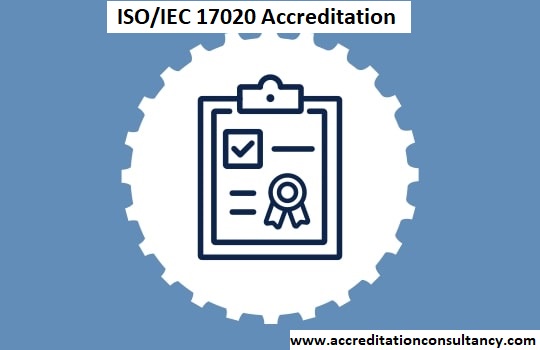Which Industries and Businesses Requires an ISO/IEC 17020 Accreditation?
Author : Accreditation consultancy | Published On : 29 Nov 2023

ISO/IEC 17020:2012 is a worldwide recognised standard developed by the International Organization for Standardization (ISO) that specifies the requirements for the competence of inspection organizations as well as the impartiality and uniformity of their inspection activities. It applies to inspection bodies of type A, B, or C as described in ISO/IEC 17020:2012, and it applies at any stage of inspection.
A recognised inspection organization must also demonstrate that it maintains a high level of customer service, ensuring that its clients' demands are addressed and that the inspections it performs are appropriate for their intended purpose. It must also have plans in place to guarantee that it stays up to date on advancements in the field of inspection and maintains its competence over time.
Which Industries and Businesses Requires an ISO/IEC 17020 Accreditation?
ISO 17020 certification is valuable in a variety of businesses that rely on inspection bodies to assure the safety, functionality, and quality of their products, services, and systems. The standard applies to all sorts of inspection bodies, regardless of sector. Here are some of the important industries where ISO 17020 is most commonly used:
- Manufacturing: Inspection organizations in the manufacturing sector frequently seek ISO 17020 accreditation to demonstrate their expertise in checking the quality and security of goods that are manufactured such as machinery, equipment, food products, and consumer goods.
- Construction and Engineering: ISO 17020-accredited inspecting bodies play a critical role in guaranteeing the safety and structural integrity of buildings, bridges, roads, and other infrastructure projects in the construction and engineering industries.
- Energy and Utilities: Inspection organizations perform critical inspections of equipment, installations, and operations in energy sectors such as oil, gas, and renewables to guarantee safety, efficiency, and regulatory compliance.
- Health and Safety: Health and safety inspection bodies use ISO 17020 to demonstrate their competence in areas such as workplace safety inspections, PPE testing, and occupational health assessments.
- Environmental: Environmental inspection agencies commonly seek ISO 17020 accreditation to establish their dependability and proficiency when evaluating compliance with environmental rules and standards.
- Transportation: Inspection bodies in the automotive, aviation, and maritime industries ensure the safety and operation of vehicles and equipment, as well as regulatory compliance and the overall efficiency of the system.
- Food Safety and Agriculture: Food safety and agriculture inspection organizations may utilise ISO 17020 to verify their capacity to conduct reliable inspections of food production facilities, agricultural operations, and related systems to comply with food safety standards and regulations.
- Medical & Healthcare: ISO 17020 accreditation demonstrates the competence and dependability of bodies examining medical devices, healthcare facilities, and associated services.
- Telecommunications: Inspection bodies in this business inspect equipment, infrastructure, and compliance with electromagnetic compatibility, radio frequency, and product safety regulations.
In summary, ISO 17020 accreditation can be beneficial to inspection organizations in practically any business where there is a requirement to show the safety, functioning, quality, or regulatory compliance of products, services, or systems. It provides a variety of benefits, including higher credibility, operational effectiveness, and market potential.
